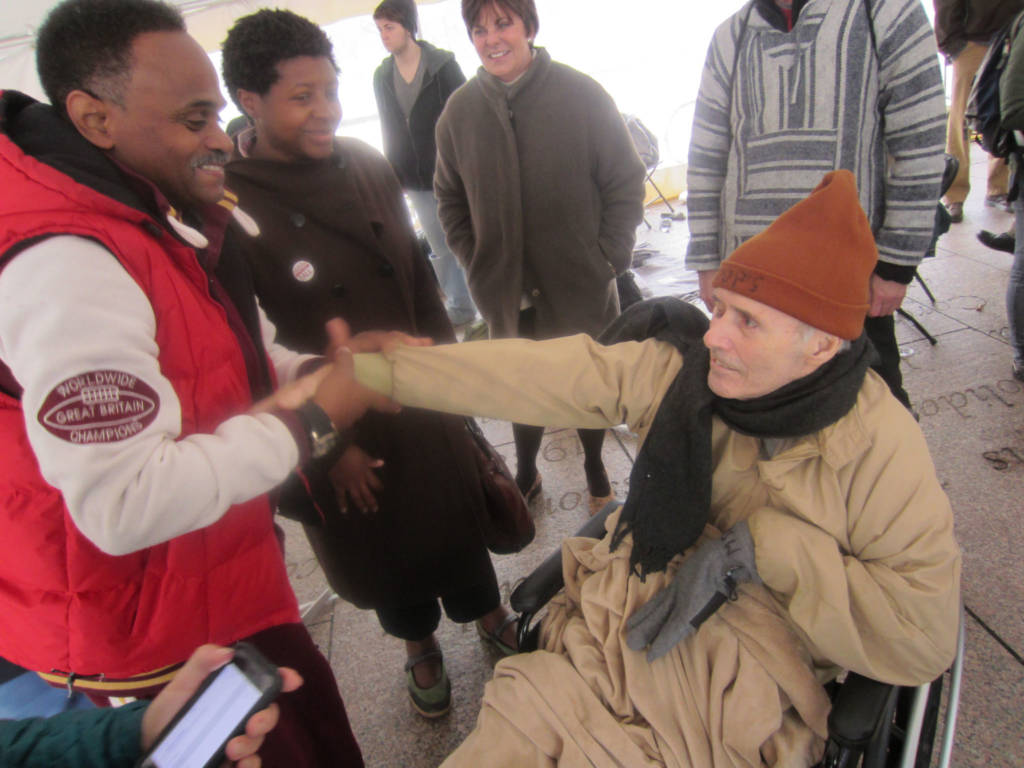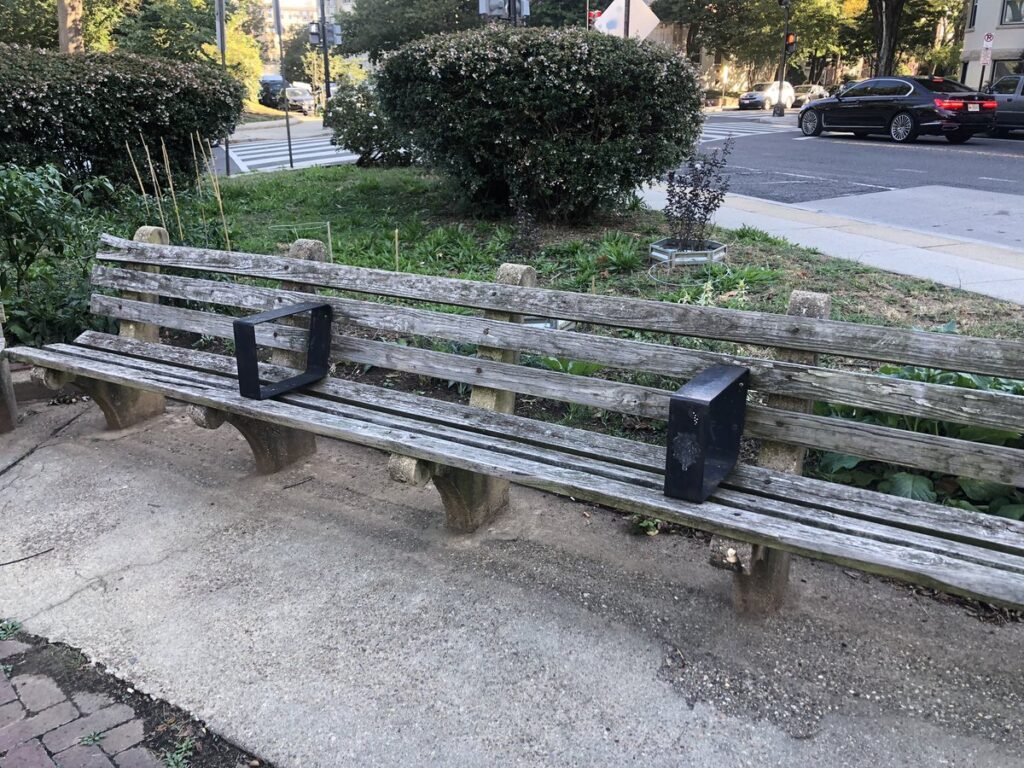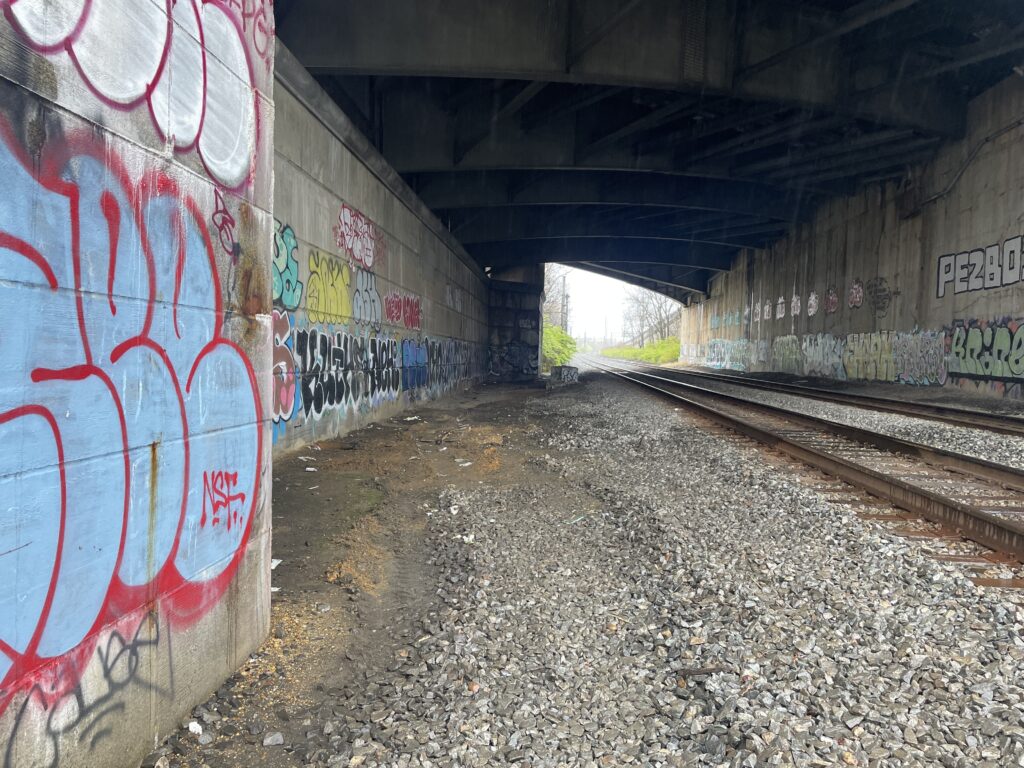When Michael Stoops arrived at D.C’s 2015 Homeless Person’s Memorial Day, the 25th anniversary of an event he helped found and coordinate, it was the first time many of his friends and fellow advocates had seen him in months. Stoops suffered a severe stroke in the summer of 2015.
“We would not be remembering these people who died on the streets if it was not for your decision to honor those who passed on without a home,” Robert Warren said at D.C’s Homeless Person’s Memorial Day service. “You helped us to raise our voices, we are all grateful to you, Michael.”
Stoops has been working directly with unhoused and formerly unhoused people and homeless advocacy groups since 1972. He is a founding board member of both the National Coalition for the Homeless (NCH) and Street Sense. Stoops joined the NCH staff in 1988. Prior to his stroke, he was the Director of Community Organizing there. In addition to coordinating National Homeless Persons’ Memorial Day, he served as an advisor to NCH’s Faces of Homelessness Speakers’ Bureau and coordinated events such as National Homeless Voter Registration Week and National Hunger and Homelessness Awareness Week. Stoops was involved in the first major federal legislative response to homelessness, during the Reagan administration, when he helped research and write the McKinney-Vento Act. After McKinney-Vento’s original passing, he helped create many of the Act’s amendments as well.
Right now, Stoops is in Maryland recovering from his stroke. He is unable to speak, but was able to conduct an interview with Street Sense via yes or no questions and by pointing to printed lists of answers.

He was most eager to answer questions about D.C’s recent encampment sweeps and the criminalization of homelessness. Stoops sees encampment sweeps as discrimination against those experiencing homelessness. He believes the laws that support encampment sweeps are unjust. The criminalization of homelessness has increased, according to Stoops, who held up two fingers to indicate it’s become worse in the past two years. He thinks the Metropolitan Police Department has recently begun to focus on the campsites they once ignored.
Stoops believes encampment sweeps are the result of gentrification. He expressed concern that certain affluent neighborhoods often do not want visible encampments near their homes or businesses. As a result, he believes the District often houses the most visible people and not always the most vulnerable.
Stoops talked about this “not in my backyard” mentality in an online Q&A published by the Washington Post in 2005. He communicated to Street Sense that he wants his Q&A quotes used in this article.
“We also know that communities rarely ‘want’ affordable housing units built in their neighborhoods. This ‘Not in my backyard’ mentality creates a situation where there is no real drive for affordable housing to be created except from advocates and low-income people who rarely control resources,” Stoops said in the Q&A.
In 2005, Stoops spoke about that mentality in terms of affordable housing, but the “not in my backyard” mentality was also present during discussions about encampment sweeps in 2015.
“There are a huge range of opinions about homelessness in our community,” Foggy Bottom Association (FBA) President Marina Streznewski told Street Sense in November 2015, “I had one person say ‘I pay too much in taxes to have to look at this.” On the other hand, people have said ‘they are our neighbors too.’”
During a meeting with activists on December 18, the local Homeless Person’s Memorial Day, Ward 2 Councilmember Jack Evans said that people who walk by homeless encampments are often “scared.”
“There have been complaints from the neighborhood about this [encampment] site for many years,” Jenna Cevasco, spokeswoman for Deputy Mayor Donald said in an email to Street Sense in November 2015.
Stoops believes many government officials are well-intentioned but ineffective. He does not think the Bowser Administration has been more effective in ending homelessness in the District than any other mayoral administration.
Stoops was able to write some of his answers down during the interview and one question, in particular, stood out to him: “Is HUD effectively helping to stop the criminalization of the homeless?” Though much of his handwriting is illegible, next to that question about Hud’s effectiveness, Stoops printed, legibly, “No.”
![]()
More than a decade earlier, in the Q&A, Stoops echoed many of the same opinions he has today.
“Many cities, including Washington D.C., have been developing ten year plans or plans in general to end homelessness. Talking about ending homelessness is one thing, doing it is another. Unless we have additional substantial public and private resources aimed at the root causes of homelessness, we will continue to see homelessness increase,” Stoops said.
He is currently awaiting transfer to another facility, which is Metro accessible. He is excited to move closer to his many friends in the District and eager to return to work as soon as possible to help end homelessness.








